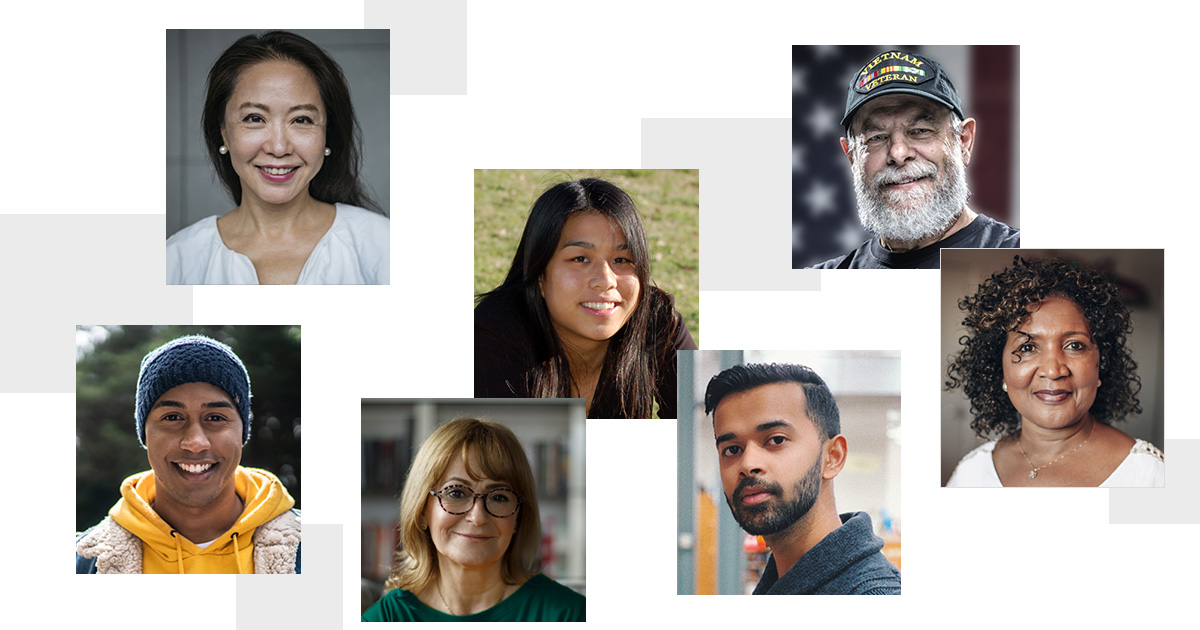
Mental Health Minute: Community
Alief ISD: October 2024
October is National Substance Abuse Prevention Month
In October, the Substance Abuse and Mental Health Services Administration (SAMHSA) is observing Youth Substance Use Prevention Month. The need for prevention has never been greater. Studies show that the earlier in life a young person starts using alcohol or other drugs, the greater their lifetime risk of misuse or addiction.
- In 2021, more than 100,000 people in the U.S. died from a drug overdose.
- According to SAMHSA’s 2020 National Survey on Drug Use and Health, 8.2 percent of adolescents aged 12 to 17 drank alcohol in the past month, and 13.8 percent of adolescents aged 12 to 17 used illicit drugs in the past year.
For prevention to be effective, we focus on what works. A Guide to SAMHSA’s Strategic Prevention Framework offers five steps and two guiding principles to put comprehensive solutions in place. We know, for example, that prevention works best when it:
- Addresses risk factors and protective factors.
- Operates at the individual, relationship, community, and society levels.
- Addresses social determinants of health.
- Is tailored to the unique needs of individuals and communities.
- Is culturally competent.
- Is sustainable
We also know that early intervention is vital for youth. Every year that substance use is delayed while the adolescent brain develops, the risks of addiction and substance misuse decrease.
A modern prevention system includes four elements (4 E's):
- Early action (act early, across the lifespan and the continuum of care).
- Easy access (create and sustain barrier-free access to prevention resources and services).
- Effective delivery (deliver resources and services that are responsive to local needs and based on data).
- Equitable opportunities (develop and support opportunities for everyone to achieve optimal health — regardless of socioeconomic status, race, ethnicity, gender, sexual orientation, religion, geographic location, disability, and other identities).
Substance Abuse Prevention Resources
Thank you!
Thank you to Alief Taylor HS for hosting our Fighting Fentanyl event sponsored by Region IV.
October is ADHD Awareness Month
ADHD Awareness Month’s goal is to provide reliable information and resources to help people thrive with ADHD. Although the month of October is designated as ADHD Awareness Month, learning and sharing information about ADHD is beneficial all year long! In keeping with our 2024 theme, Awareness is Key!, we encourage the ADHD community to increase awareness and understanding by sharing ADHD information and supports with all who could benefit.
Our ADHD experts provide a lot of great information about ADHD, answering common questions, busting myths, and talking about different aspects of ADHD life.
In 2024 we will be adding even more information from ADHD researchers and experts. The ADHD Awareness Month Coalition would like to thank our past and current ADHD experts and all those who have submitted their ADHD art, ADHD stories, and ADHD memes to inform and inspire.
Parenting Connection
October is Substance Abuse Prevention Month
Prevention Starts With You!
You are the most influential person in your child’s life.
Children watch what you say and do.
Tips for you to support your child in making healthy & safe lifestyle choices:
Social Emotional Learning: Community Edition
October’s Character trait is Responsibility. Responsibility means taking action and understanding the impact of our choices. Responsibility is essential for becoming a healthy, happy, and productive person. One of the qualities parents say they most want to instill in their kids is responsibility. However, it seems that more and more families are struggling with how to balance the demands of tough academic loads and extracurricular schedules against the very real need to teach kids to step up and be more responsible. Colleges are adding classes in “adulting” to their course catalogs, and everyone from middle school educators through graduate school deans are sounding the alarm over kids’ lack of basic life skills. However, how do you enforce a chore chart when your teenager is putting in late nights mastering AP classes? In addition, if you have to stand over your middle schooler to be sure expected tasks are done, are they learning responsibility? Where is the line between expecting kids to step up, and overloading a generation of already stressed-out young people with increasing to-do lists?
It can be overwhelming for both kids and parents to feel as though “teaching the art of adulting” is yet another item to check off each day. Nevertheless, the good news is, with just a few tweaks to your already-established family meal routines, you can pack big lessons about responsibility into a short window of time daily. And if you don’t have a consistent family meal routine yet, starting one — even just one day a week — could be the perfect way to kick-start a responsibility practice (while also getting you all the scientifically proven benefits of family dinners). Here are some ideas to help you teach responsibility through family dinners:
Give everyone a job. Every member of the family can pitch in to make mealtimes a success! Toddlers can fold napkins and carry them to the table; preschoolers can wash produce, stir ingredients and set out unbreakable dishware; elementary kids can help prepare simple dishes, pour drinks and clear the table; and so on.
Put kids in charge of planning. It’s not just the ability to do a job when asked that makes a responsible person — kids also need to build the executive functioning, or planning and organizing, skills that are needed to see something through from start to finish.
Let the natural consequences play out. One very real reason you may feel that your kids don’t show much responsibility is that as parents we have the impulse to nag, micromanage and rescue so that tasks get done up to adult standards. Instead, try letting the whole family notice and learn from natural consequences. “Oops, dinner’s ready, but nobody set the table. We aren’t ready to eat yet!” If we are constantly jumping in to head off minor inconveniences like these, it’s harder for kids to feel that their efforts are needed — and if they don’t feel that they have an important contribution to make, they aren’t likely to try very hard.
Responsibility isn’t just about getting a job done; it’s also about learning to do good things for others. Teach the “giving” side of responsibility and enjoy the spirit of the upcoming season.
Community Partner Spotlight
Quality Affordable Healthcare in Alief, TX
We offer the type of quality community healthcare in Alief, TX, that you deserve. At HOPE Clinic, we’re a medical center that is truly on your side, that goes above and beyond to make sure you get the care that you need. We pride ourselves on being part of the community; it’s one of the pillars that our clinic was founded on. You can trust us to put you first and to work hard for you at every turn. We have varied hours to help fit your schedule, so reach out to make an appointment. Urgent matters can be addressed with same day appointments.
Serving Our Community
Providing quality healthcare in a culturally and linguistically appropriate manner in over 30 languages.
For more information, and to make an appointment, please contact us at:
https://www.hopechc.org/locations/hope-alief-clinic/
(713)-773-0803
Self Care
Counselor Spotlight
Terri Guidry
My name is Terri Guidry. In January, I will be in Alief ISD 32 years. I love helping students grow academically, socially, and emotionally. I am an advocate for fostering relationships with students and staff. I had the privilege of opening Alief Early College High School in 2009. I love our students and seeing the adversities that many have overcome to graduate from high school with their Associates Degree from Houston Community College.
I have been married to my husband, Jeff, for 36 years. I love spending time with my family. I have 3 children and 3 grandchildren (another coming October 1st).
Candice Richmond
My name is Candice N. Richmond and I am a native of Waco, Texas. I attended the University of Texas at Austin and completed my undergraduate college career at Southwest Texas State University (now known as Texas State University) with a Bachelor of Science Degree in Interdisciplinary Studies. I continued my graduate education at the University of Houston at Victoria to obtain a master’s degree in Counseling.
My work experience has been with the Alief Independent School District for 29 years. My career in education began in 1996 at Hicks Elementary as a Math and Science Teacher (5 years), Middle School and Lead Counselor at Alief Learning Center (7 years), then on to Olle Middle School (9 years) where I was a part of the inaugural Transition Counselor Team while serving as Lead Counselor, and now, I currently serves as the Co-Lead Counselor at Alief Early College High School (8 years).
I joined the AECHS Family in 2016 as they celebrated their first National Blue Ribbon Schools Recognition, and now I am a part of the fabric and tapestry of this school’s culture in celebrating their second National Blue Ribbon Schools Recognition.
Dates to Remember
October 8- College and Career Night at Marshall Center for Advanced Careers (6:00-8:00 p.m.)
October 9-11- Fall Break
October 14- Student holiday/Staff work day
October 17: Lunch & Learn: Emotional Regulation 10:30-11:00 & 1:00-1:30
Zoom Link: https://zoom.us/j/99447152742?pwd=1QWnZE4dtRgOL9WUk5SVK7ey86iFH7.1
Resources
Mental Health Screening Tool
https://screening.mhanational.org/screening-tools
NAMI Texas
NAMI National
Crisis Intervention of Houston
Harris Health System
Harris County Psychiatric Center (HCPC)
Harris County Sheriff’s Department Crisis Intervention Team (CIT)
713-221-6000
Houston Police Crisis Intervention Team (CIT)
The Harris Center for Mental Health and IDD
The Council on Alcohol and Drugs Houston
http://www.council-houston.org
American Psychiatric Association
American Psychological Association
Anxiety Disorders Association of America (ADAA)
Autism Society of America
National Institute of Mental Health
National Suicide Prevention
http://www.texassuicideprevention.org/
Obsessive Compulsive Foundation
If you need further support check out these Texas-based organizations and websites:
2-1-1 Texas - Using the Texas Health and Human Services Commission’s database, you can search for resources based on your zip code. For further help, dial 2-1-1 to reach their anonymous hotline and receive personalized help with basic needs in your community.
Community Resource Coordination Groups - Check out this website, created by a group of local partners and community members, to search for benefits and services in almost every county in Texas.
Feeding Texas - Find free groceries, sign up for nutrition programs, and connect to other helpful services based on the food banks in your zip code.
Texas Association of Community Health Centers (TACHC) - Search for community health centers and providers with appointments available for Texans without, or with limited, health insurance.
Texas Homeless Network - If you are experiencing or at-risk of experiencing homelessness, use the THN website to search for free or reduced cost services (medical care, food, housing, etc) in your area.









